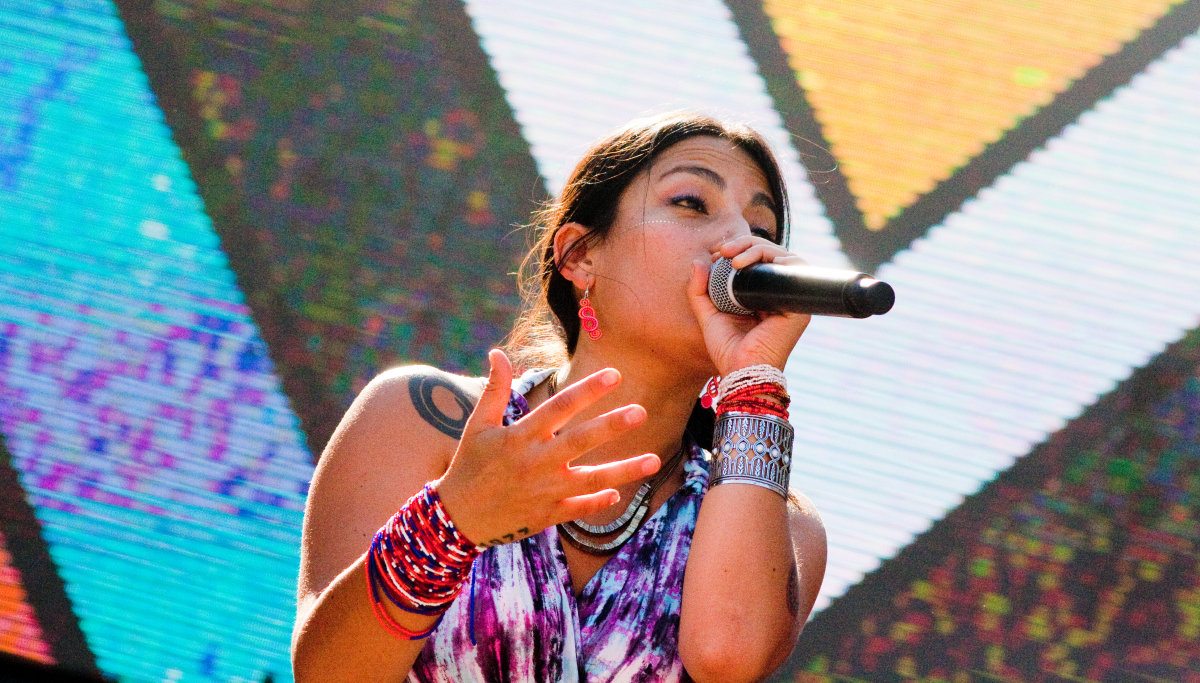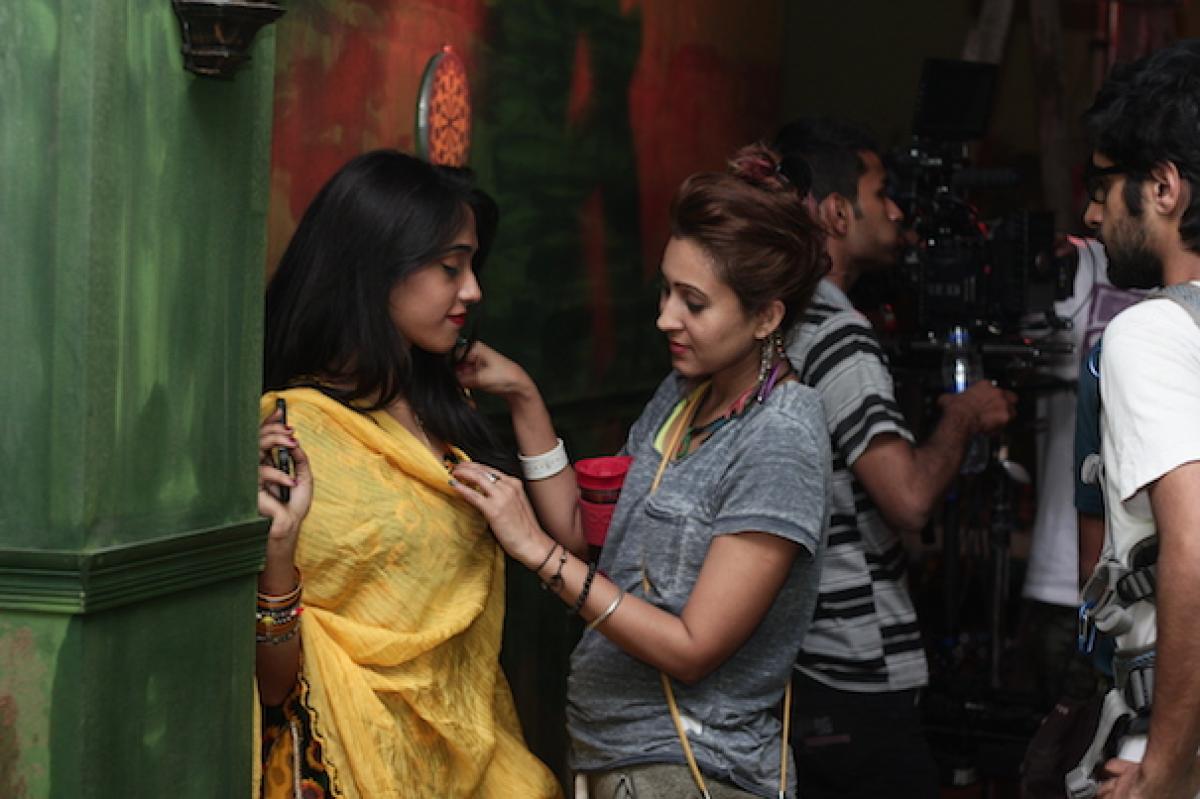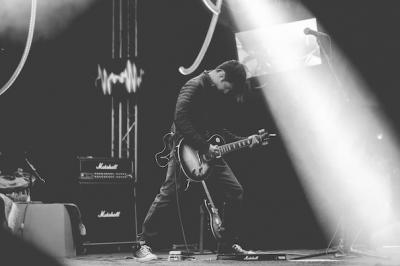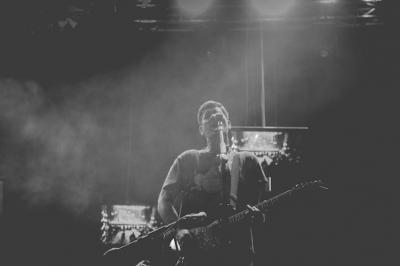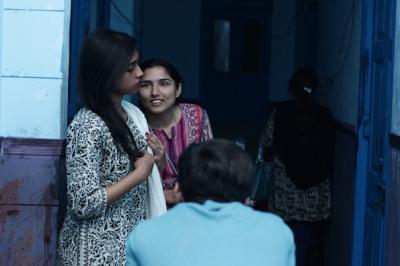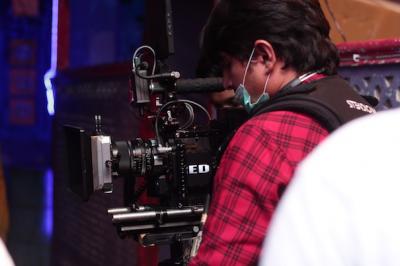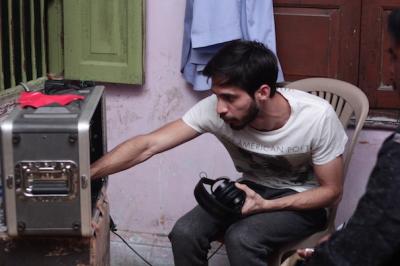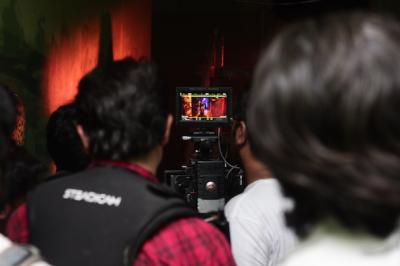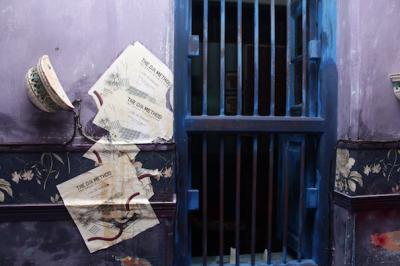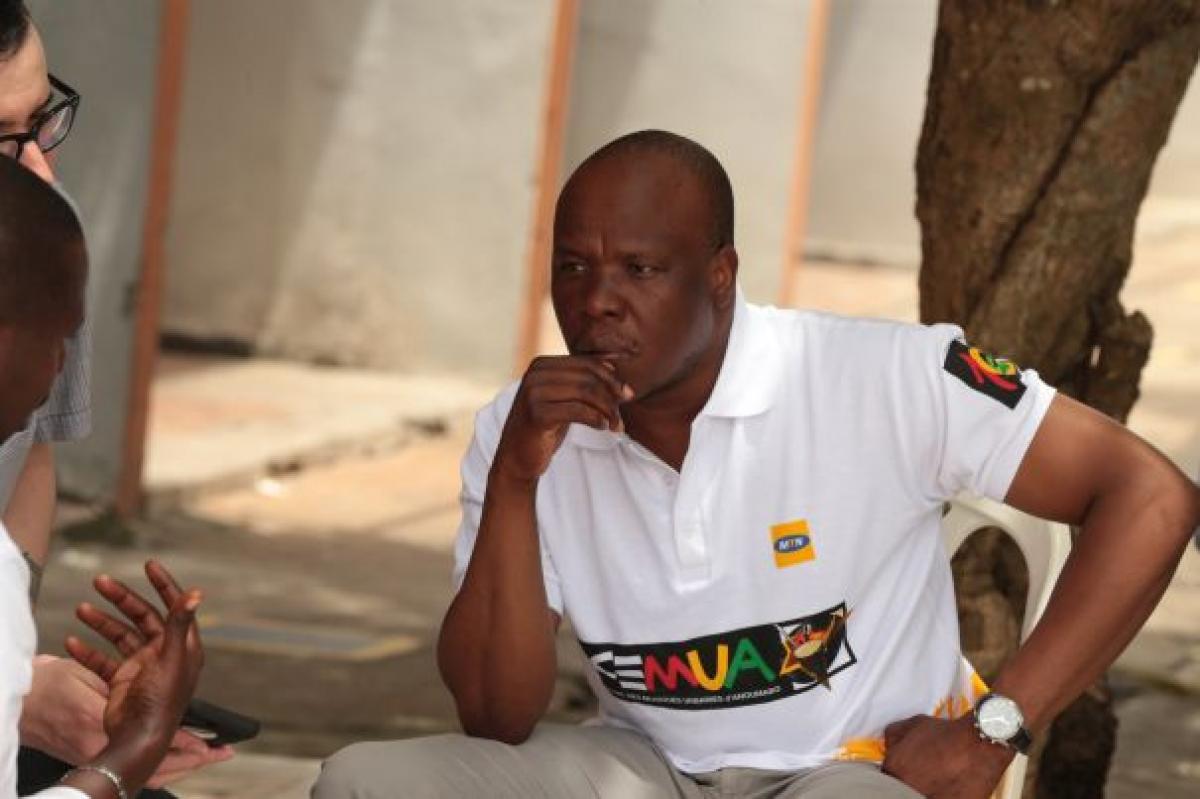The FEMUA festival in Abidjan, Ivory Coast, boasts around 100,000 spectators. Today it's an important springboard for artists who are starting out, from hip hop to zouglou. A report from a gathering that strives for conduit of union and social cohesion.
In the Ivorian capital, music echoes from every street corner, usually late at night and at high volume. It's almost 2 in the morning on Saturday 29th April 2017, when Tiken Jah Fakoly goes on stage at the Anoumabo Urban Music Festival in Abidjan (FEMUA). The audience gathered at the foot of the stage is overexcited: the ovation runs through the crowd like a tidal wave. A concert by the Ivorian reggae star - especially in Abidjan, the capital that supported his ascent to glory – is nothing like a Tiken Jah Fakoly concert in Europe. Here, the atmosphere is fervent, vibrant, ready to burst.
The lyrics of the singer exiled in Mali are anchored in a reality that everyone experiences in daily life. Listening to one of his cult titles, «Open the frontiers», the first ranks of the 10,000 people standing by the stage get a little too excited. Imperturbed, Tiken Jah Fakoly calms the atmosphere down by talking to them quietly. To pose as a defender of a fairer visa policy between Africa and the West should not make us forget that «Africa is the continent of the future, the continent where everything remains to be done. It is enough to get involved. Our place is here, Africa needs our strength!»
The New Generation
Rastafari Messiah, draped in a bogolan cape, grey beard, Tiken Jah Fakoly has come in force with his singers, a brass section and a n'goni (lute) player – a wink to this Mandingo tradition from which he is born and is dear to him. At four o'clock in the morning, the crowd, finally satisfied, returns home. The smiles have replaced the tension of the early evening, the accolades are numerous. Tiken Jah Fakoly has succeeded in his bet: his music is a conduit of union, of social cohesion, of strength.
These are precisely the values advocated by FEMUA. Since its ten years of existence, this festival, unlike any other, has emerged as one of the most important urban music events on the African continent. One of the most engaged too. Entirely free, financed by the sponsors (mobile network operators), it gathers around 100,000 spectators over a few days and parades on its gigantic stage, planted in the middle of a bumpy street in the village of Anoumabo, African stars (Salif Keita), French artists who have made it in Africa (Black M and Singuila) and representatives of the new African generation in full swing (DJ Leo, Revolution, Kiff No Beat, Soul Bang, Nash, Bisa Kdei).
From Music to Schools
«A people can lose a lot, but it will never lose its culture. Music must be a platform that promotes living together. The FEMUA has made social commitment its DNA. The music of Magic System is festive, but our commitment takes place on the ground by building schools, rehabilitating hospitals and nurseries». Today, at the height of his fame, A'Salfo Traoré is the perfect example of an artist who, starting from the hit record 1st Gaou, was able to build his career while remaining a humanist.
We meet in the sumptuous Hotel Ivoire, the man is discreet, his voice hushed, his speech precise, the determination quiet. A'Salfo Traoré created FEMUA ten years ago on a whim to offer his childhood district a great popular event. Today, with activities for children and teenagers, he wants to invest hope for a youth affected by an unemployment rate that is close to 40%. Thanks to FEMUA, the Anoumabo ghetto is being rehabilitated.
The next day we meet his elder, Tiken Jah Fakoly, in the Plateau business district where everything seems high up, towers and trees touching the sky. «People no longer believe in politics. It's up to the artists to take over. I am the head of the association «One Concert, one School». The principle is simple: the whole revenue of the last concert of a European tour is used to build a school in an African country.» Tiken Jah Fakoly is also creating a recording studio and a radio station in another great musical district of Abidjan, Yopougon. The singer completes his interview marathon as the first cries of the bats are heard, they come out of their nap in the trees and will soon float by the thousands above our heads with their shrill cries. Definitely, Abidjan is an intense city in all respects.
800,000 Downloads in 24 Hours
For A'Salfo, «the big stage of the FEMUA is a dream for all artists who are starting out. This is the stimulation we want to give to the youth». Few will be chosen, but many are jostling at the gate. Among them, Revolution, a new Zouglou group in full expansion (read below). He started by making his own demos, burning CDs from a PC and selling them on the street. «People did not know us, they asked us to sing a capella to get an idea!» recalls Saï Saï, one of the singers.
But in this country of nearly 23 million inhabitants of which 78% of the population is under 35 years, music is listened to above all via telephone. The goal of the budding artist is therefore to access the free and preferably legal download platforms. «We worked like that for years», says Prometheus, the other voice of Revolution. «If the download of a title takes off, then the DJs play it and the concert offers arrive». A track that works? «It's 800,000 downloads in 24 hours», he concluded without blinking.
Sign of the times, Sony Music and Universal came to settle in Abidjan in search of the African stars of tomorrow. West Africa alone has 320 million inhabitants. Nigerians P-Square (rappers' duo) and Wizkid (Afro-pop star courted by Drake and Jay-Z) have already paved the way. They now play in stadiums for fees that range between 100,000 and 150,000 euros. Revolution is one of the first Sony signings, while the Kiff No Beat rappers have landed at Universal. Abidjan is moving like never before and its musicians are more than ready to be sucked into the spiral of the music industry.
Zouglou Fever in Yopougon
As you enter the main street of Yopougon, you feel dizzy in front of the rows of scrub trees planted one behind the other for miles and miles. The scrubs are small bars on the street, generally managed by the inhabitants of the adjoining house where you can drink, eat chicken or braised fish and, very often, listen to music. As for Yopougon, it is the largest borough of Abidjan (1.3 million inhabitants), the one where nearly all the musicians come from and where the zouglou was born.
It is in the heart of Yopougon that the Internat, temple of zouglou, is situated. It brings together thousands of Ivorians every Sunday evening around big canteen tables to listen to confirmed stars or groups in full ascent. Today we’re lucky, we chance upon Molière, a zouglou singer with the voice of crooner and lyrics as poetic as they are deeply felt. Here the sound is loud, very loud, enough to explode the eardrums of poor Westerners. The name Internat refers to student life and the beginnings of this musical movement.
«Zouglou was born on the campus of Yopougon university while the Ivorian government had just proclaimed a white year, following numerous strikes and demonstrations.» By white «year», the zouglou pioneer, Alan Bill De Souza means a year that does not count in the apprenticeship curriculum. This is 1990, the power of the first president of Côte d'Ivoire, Félix Houphouët-Boigny, is disputed on all sides.
A Philosophical Dance
It is during this period that a student movement is born, creating a dance and daring to sing aloud what everyone thinks in a low voice. «It was a philosophical dance that allowed the student to reflect. We raised our arms in the sky to address God and ask Him to help us in our daily lives» recalls Alan Bill de Souza, sipping a beer on the shady veranda of the banana bush.
In the early 2000s, Magic System propelled its 1st Gaou on the international stage and continues to impose their varied version of the genre. A few years later, with the emergence of the coupé-décalé, a strong dance style without any inclination for deep reflection, the zouglou genre is eclipsed only to be reborn today, stronger than before.
«After Magic System, zouglou has not managed to leave Côte d'Ivoire», explains Prometheus from Revolution. «It was based only on folk rhythms. We chose to revolutionize the movement to allow zouglou to travel again. We brought new rhythmic patterns and current themes. Before, zouglou was sadness, misery, but we come from a generation that wants to see it evolve, that it can win, that there is hope.»
